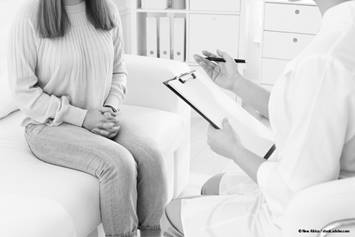Syphilis
Syphilis is a sexually transmitted infection (STI). Anyone who is sexually active has a chance of getting syphilis.
What Is Syphilis?
Syphilis (si-fuh-luhs) is a sexually transmitted infection (STI) caused by the germ Treponema pallidum. There are 3 stages of syphilis. The stage you have depends on your symptoms. The stages progress over time if you do not get treated. This means the longer that you have syphilis and are not treated, the worse the symptoms may get. If syphilis is not treated by the final (tertiary) stage, it could lead to death.
Anyone that is sexually active is at risk of getting syphilis. It is spread through direct contact with a sore, or chancre (shang-kr), through vaginal, oral, or anal sex. It can also be spread from an infected parent to their baby through vaginal delivery. You cannot get syphilis through contact with:
- Toilet seats
- Bathtubs
- Doorknobs
- Hot tubs
- Swimming pools
- Shared clothing or eating utensils
Risk Factors
Having vaginal, oral, or anal sex puts you at risk for getting syphilis. The risk is higher if you:
What Are the Signs and Symptoms of Syphilis?
Syphilis has 3 stages that are based on signs and symptoms. It is diagnosed with a blood test.
Stage 1: Primary
- One or more red chancres appear. They’re usually round, firm, and painless. They can appear on, in, or around the: penis, vagina, anus, rectum, lips, or inside the mouth.
- Even without treatment, the sores will heal and go away after 3 to 6 weeks. You still need to be treated for syphilis to keep it from moving to the second stage.
Stage 2: Secondary
- Symptoms usually begin weeks to months after the first chancre sore appears. Many people miss the signs of this stage.
- Common symptoms like: fever, fatigue, headache, skin rash, muscle aches, weight loss, loss of appetite, patchy hair loss, or large lymph nodes.
Stage 3: Late (tertiary)
- If primary or secondary syphilis is not treated, it can spread This can cause damage to the heart, brain, bones, and skin. It could lead to death.
- Common symptoms are problems with: vision, walking, memory loss, balance, bladder control, or mental function.
How Is Syphilis Treated?
If syphilis is not treated, it can cause severe health problems. It can also increase your risk for getting human immunodeficiency virus (HIV).
- Treatment for early infections is usually 1 antibiotic shot. You may need more than 1 shot of antibiotics depending on how long you’ve had the infection.
- Blood tests need to be done 3, 6, and 12 months after treatment is finished. Keep all of your follow-up appointments to make sure the infection is gone. You’ll probably have a few of these visits.
- You and your partner(s) must be treated. You can be treated at:
- Nationwide Children’s Hospital – call central scheduling at (614) 722-6200
- The Columbus Health Department located at 240 Parsons Avenue, Columbus, OH 43215. You can also call (614) 645-7417.
- If you or your partner(s) live outside of Columbus, call your local health department.
Preventing Future Infection
Not having sex (abstinence) is the best way to avoid STIs. If you do have sex, these things might help prevent the spread of STIs:
- Limit your number of sexual partners. Know your partner(s) and their sexual history.
- Use a new condom every time you have sex, the whole time you have sex.
- Have an extra condom with you in case the one you are using breaks.
- Get tested for other STIs and HIV. Having syphilis can increase your risk of these other infections.
Other Questions
- For any questions, call Nationwide Children’s Adolescent Medicine clinic at (614) 722-2450 or Pediatric and Adolescent Gynecology at (614) 722-2250.
- You can also call the National STI Hotline at 1 (800) 227-8922, Monday through Friday, from 8:00 a.m. to 11:00 p.m.
- Go online to find out more at: https://www.ashasexualhealth.org/
Helping Hands Patient Education Materials
Written and illustrated by medical, nursing and allied health professionals at Nationwide Children's Hospital, Helping Hand instructions are intended as a supplement to verbal instructions provided by a medical professional. The information is periodically reviewed and revised to reflect our current practice. However, Nationwide Children's Hospital is not responsible for any consequences resulting from the use or misuse of the information in the Helping Hands.
HH-I-190 | ©1999, revised 2023, Nationwide Children’s Hospital



